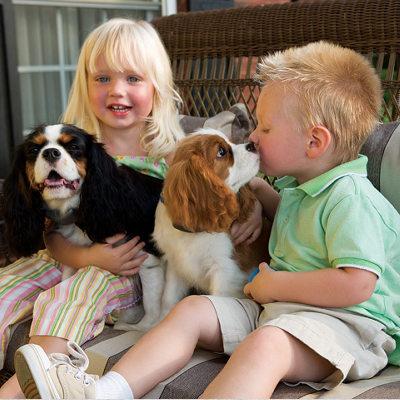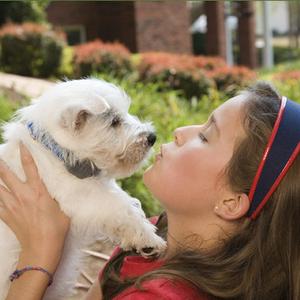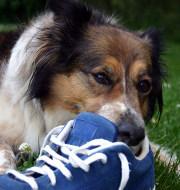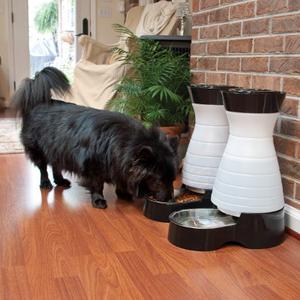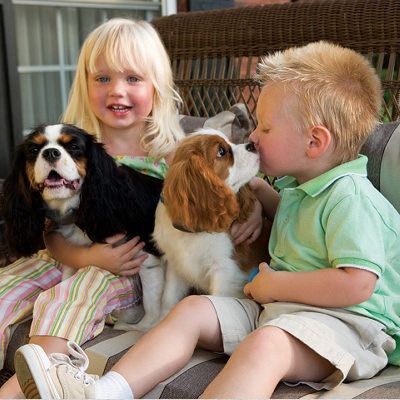 The buzzword today in dog training is Puppy Socialization - acquainting puppies to the "real world" before they are 16 weeks old through positive associations. Puppy owners had previously been told to wait until puppy shots were complete before taking them outside, which is equivalent to keeping a child housebound until he is 12 years old!
The buzzword today in dog training is Puppy Socialization - acquainting puppies to the "real world" before they are 16 weeks old through positive associations. Puppy owners had previously been told to wait until puppy shots were complete before taking them outside, which is equivalent to keeping a child housebound until he is 12 years old!
Veterinary behaviorists now emphasize that the more positive exposure a puppy has before vaccines are completed, the more balanced and behaviorally fit the puppy will ultimately be as an adult dog. That first 16 weeks is critical.
What Exactly Is Socialization?
"Socialization" is how an animal learns to interact socially with animals of its own species. For a dog, the period of primary socialization begins while he is still in the womb through chemical communication with the mother, extends to interactions with her and his litter mates after he is born, and ends when he is about 16 weeks old.
Primary socialization is when the puppy learns how to be a dog from other dogs.
Secondary socialization occurs during the same time when he learns to interact with other species, i.e., dogs to humans, cats, birds, etc. Secondary socialization is really associative learning where the puppy makes a connection between 2 events and gets used to things in the environment, including humans and other animals.
Today, we use the term "socialization" colloquially even though our use is technically incorrect. When we speak of "socialization" with dogs, we tend to include both socializing and habituating - socializing where a dog learns how to become a dog, and habituating where he learns how to live in his environment.
Many people confuse "socialization" with "behavior modification." Socialization occurs while he is a puppy with emphasis on before the onset of the fear period, which is around 8 weeks old. Socialization lasts until he is 16 weeks old. Behavior modification is his learning to adapt after this time.
Can a puppy learn after 16 weeks? Of course. However, socialization is much easier than behavior modification because prior to 16 weeks, we're working on a clean slate and don't have to modify what he has already learned.
How Does Socialization Influence a Dog's Personality?
A dog's ultimate temperament is determined by his genes and how he is raised - nature and nurture. Spending a small amount of time in giving puppies positive early learning experiences influences and impacts their behavior later in their lives.
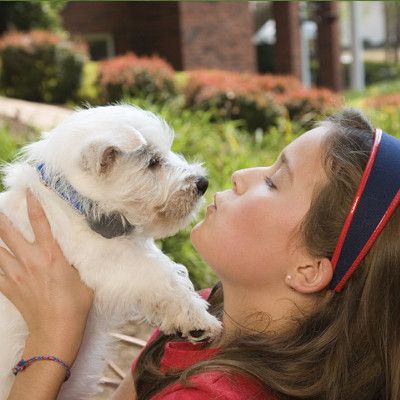 The influencers on how puppies act as adults are:
The influencers on how puppies act as adults are:
- The temperament of the dam/mother, i.e., how the dam acts towards people, events, and other dogs
- How people interact with the puppy
- The age at which the puppy is separated from his mother and littermates
- How many people, places, events, sounds, sights, and locations the puppy has been introduced to before 16 weeks.
If a puppy does not have proper socialization and habituation, he will never reach his full potential and will likely:
-
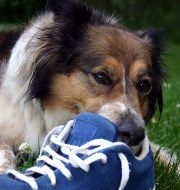 Be aggressive
Be aggressive - Be fearful of anything new including animals, people, and events
- Be medically unsound. If a puppy is comfortable with his everyday environment, then he does not waste energy by being fearful or anxious. Long-term anxiety or fear zaps energy and he has less resistance to fight off disease.
- Be shy or timid
- Have difficulty in relating or communicating with other dogs, including reading body language, bite and play inhibition, and recognizing hierarchical structures
On the other hand, a puppy who has had proper socialization and habituation:
-
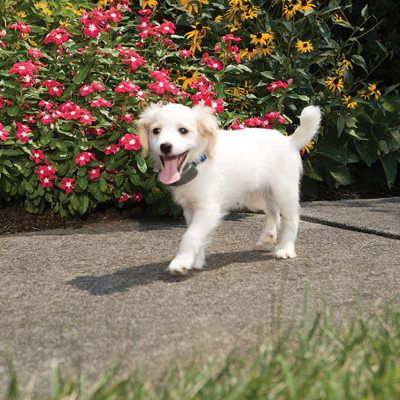 Has better depth perception o Has increased balance and body awareness
Has better depth perception o Has increased balance and body awareness - Has increased connections between brain cells which provide a solid foundation to draw from when encountering new experiences
- Is comfortable in his everyday surroundings
- Is less likely to be anxious
- Has better disease immunity
- Is less likely to be unruly
- Is less likely to chase animals and fight
- Have extreme reactions such as separation anxiety or aggression
- Learns to overcome frustration by developing self control and how to cope with problems rather than reacting fearfully or aggressively.
What Do I Need to Remember about Puppy Socialization?
In summary, "socialization" is a puppy being comfortable around anything new before he is 16 weeks old, including humans, other animals, and the sights, smells, sounds, and locations of everyday life. It has 3 basic components:
- Primary socialization of dogs with dogs
- Secondary socialization of dogs with humans (and other animals)
- Habituation to objects and events in his environment
With proper socialization, a puppy:
- Becomes accustomed to his environment, even the things he has never seen, heard, or smelled before
- Develops communication skills
- Learns to ignore non-threatening things
- Recognizes and interacts with the people and other animals he is living with
What we teach our puppies while they are puppies does not always show up immediately but simmers around for months. Proper socialization is the foundation for social skills, confidence, behavioral stability, and self-assurance.

